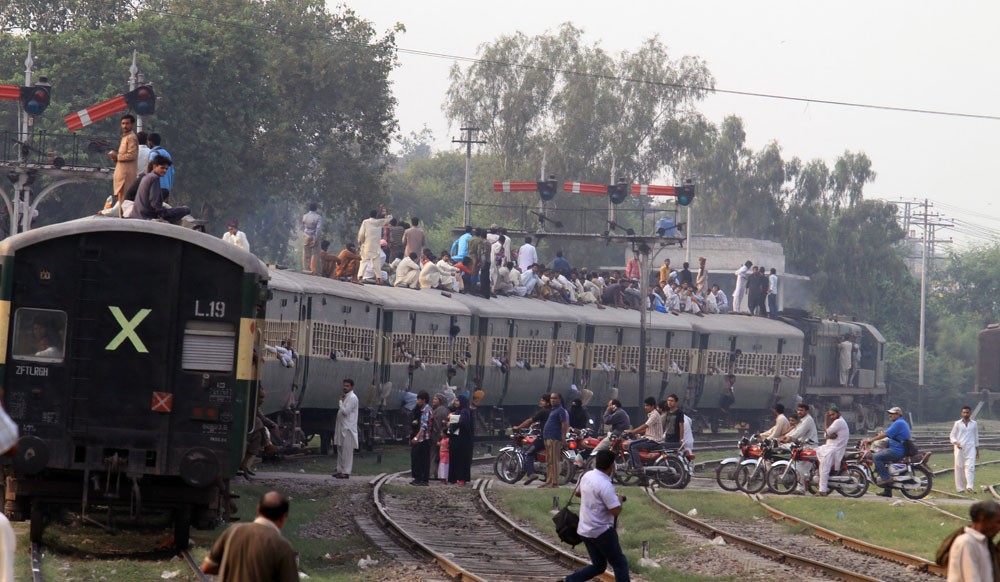
The risk of accidents in trains is far less than in road travel

The railways is the cheapest mode of transport, mainly because of its capacity of mass transportation. This is also one of the safest modes of transportation. Pakistan railways, despite having an obsolete infrastructure and issues with punctuality is considered among the safest mode of transportation in the country.
Indeed, most of the tracks, bridges, signals and telegraph equipment date back to the days of the British Raj and operated manually. According to the Railway Year Book 2011-12, there are 13,841 bridges, including 532 major and 13,309 minor on Pakistan Railways network, out of which 86 per cent are more than 100 years old and have completed their life. "159 Bridges have been identified being in acute distress requiring immediate repair," it reads.
There were 117 train accidents in Pakistan in 2013, while the number of accidents in 2012 was 96. Collisions at unmanned crossings make more than 60 per cent of total accidents in both years (71 in 2013 and 64 in 2012). There are 4,072 total railway crossings in the country out of these over 2,000 are unmanned. Most of such unmanned crossings are in rural areas.
While on the other hand, close to 9,000 road accidents are reported to the police every year from 2011-14, killing over 4,500 people on average, according to the Pakistan Bureau of Statistics (PBS).
Pakistan Railways officials say rail is a very safe mode of travel and the risk of accidents here is far less than in road travel. "However, this does not mean that we are not alert and unable to avoid accidents. In fact, we take utmost care and measures to make the journey safe and secure for the travellers," says Rauf Tahir, spokesperson of Pakistan Railways.
He tells TNS that the bogeys are designed in a way that in case of an accident or turning over they do not get compressed or dented. "The sheet is so strong that the bogeys retain their shape. Due to this, casualties are avoided though people are injured. Casualties in the recent accident were mainly due to drowning and not the injuries caused due to the accident."
The railways police make special security arrangements on locomotives to make the journey safe. On every train, at least five officials of railways police, including an ASI, are deputed. "I have taken charge in railways earlier this year. There is not a single case of train robbery registered during the last six months. Less than 10 cases of theft were registered by the passengers during this time," says Jawad Ahmed Dogar, DIG operation railways police.
Read also: The Indian journey
Data shows that over the years a majority of passengers shifted to road transport despite the fact that train is a safer mode of transportation. According to official documents of railways, at present, railways carries only 20 per cent of the total passenger traffic moving from Karachi despite the fact that road traffic is more expensive and less safe as compared to train.
Shahid Hussain Raja, former secretary of Pakistan Railways and an independent consultant, writes in one of his presentations, "Pakistan Railways challenges and response" that Pakistan Railways has been successful in maintaining its passenger traffic mainly due to its cheap fare policy.
Number of complaints have been mounting for the last several years. "Most of the complaints are about low quality of services provided, lack of punctuality, disrespectful attitudes of the employees towards the passengers, unnecessary secrecy, and outright fleecing."